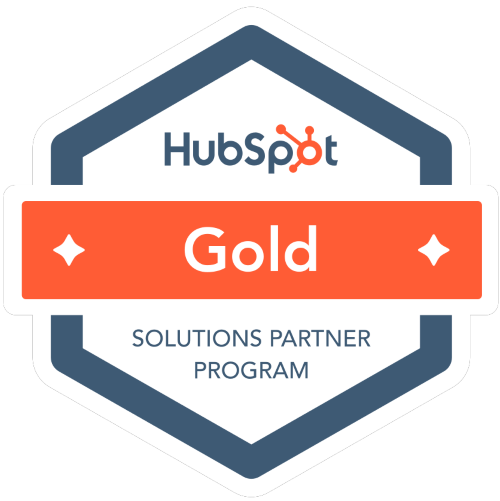6 Ways Automated Marketing Strategies to Accelerate Your Business Growth

In an age of artificial intelligence, automation is becoming a game-changer in many industries, including marketing. Businesses innovation experts seek new ways to keep up with the remaining technological trends and establish a competitive advantage in the market. While it can be argued that many businesses are still not fully utilizing the benefits of process automation, the overall trend in this direction is still unprecedented – a trend that is likely to only grow with time.
Did you know that marketing is the largest sector that uses Automation (76% more than sales and 139% more than finance)?
Over 60% of marketers use automation technologies, and the overall revenue generated from marketing automation is expected to reach over $13 billion by 2030. This widespread use of marketing automation tools is a testament to how quickly and decisively automation is shaping the field of marketing.
Whether in a creative rut or inundated with daily, repetitive tasks, automation can help you get the necessary inspiration and perspective that is often needed in marketing.
The Challenges of Implementing Marketing Automation
But a switch to marketing automation can be daunting. More than half of companies say that implementing a marketing automation strategy is complicated.
Strategies for a Successful Transition to Marketing Automation
Here are innovative ideas for business growth and tips that you can consider when making a switch to marketing automation. These could also become you sources of innovation:
- Analyze organizational needs: Remember that not all marketing tasks can be automated or are worth automating. Therefore, you have to carefully understand and examine your current marketing processes and decide which marketing tasks need to be automated. Generally, consider automating tasks that are more repetitive and time-consuming and can create bottlenecks if performed manually. Automation ultimately aims to improve the bottom line.
- Evaluate different platforms: After examining your internal processes, needs, and existing skill sets, comparatively, analyze different marketing automation platforms. Choose the one that makes the best fit for your budget, ease of use, company size, and different levels of subscription packages.If you’re new to content automation, consider using easy to use platforms, such as HubSpot.
- Organize your data: Gather marketing assets you plan to use in automation. For example, email templates, forms, design elements, and contact information can all be used for this purpose.
- Migrate data for the automation tool: Data can be transferred manually or automatically. Keep in mind that not all automation platforms provide the same functionality when it comes to data transfer.
- Automate workflows: You can start small. If you’re new to marketing automation, you can start by creating simple workflows, such as email drip campaigns or lead nurturing sequences. Once you get comfortable, you can explore other options and proceed toward creating more complex workflows.
- Test and improve: Remember to keep testing your automated processes. You can use analytics for specific tasks to see how your automated tasks are performing and A/B testing to compare existing processes with new ones.
Once you have decided to proceed with a specific marketing automation tool, you can focus on making the most out of it.
How Marketing Automation Works
A coherent marketing automation strategy allows you to digitize and automate your marketing processes to market your products in a more cost-effective, convenient, and time-saving manner.
The process of automation depends upon the quality of data. Therefore, it is imperative that the raw data that is fed to your automation platform is top-notch, meaningful, and easily accessible.
You can think of customer “touch points” as data nodes. Each subscription, each chat enquiry, and each email response is the data that your marketing automation tools will use to create customer insights and valuable data points that you can use for your marketing strategies in the future.
If you use a marketing workflow software, such as HubSpot, you can enjoy a holistic view of your marketing activities and how far along the customer journey. For different workflows, you can also see the customer points of contact, the exact time when they interact with your message, etc.
Similarly, you can automatically set up lead nurturing tasks on HubSpot, where you can automatically send text messages, emails, and meeting innovations to your contacts without having to do so manually.
Moreover, with automated chatbots, you can set up a non-human first line of contact, which is active 24/7 and can respond faster than a human chat representative.
These are just a few of the ways you can use our marketing automation tools to enhance your productivity drastically.
Balancing Automation with Human Insight
Still, automation doesn’t eliminate the need for human input.
You have to give specific input, such as:
- What message to send to the clients?
- Which customer segment to target and when?
- Which customer actions should trigger an automated response?
Once you have decided to automate with a specific marketing tool and have acquired the know-how of these tools, it is time to focus on the bottom line.
Key Benefits of Marketing Automation
Many sources focus on how enterprise marketing automation helps companies improve their processes, but for brevity, we will focus on just a few.
- Precision lead nurturing: The standard practice is to blast out generic messages and overwhelm the target audiences with marketing messages. The issue is that such messages often lack personalized information about the customer, which makes them less likely to engage with the business. Imagine how much your marketing initiatives would improve if you could target each lead with customized messages, keeping their individual needs, preferences, and buying behavior in mind. With automated marketing tools, you can do that.
You can use the contact data to see someone’s interaction history, unique indicated interests, etc. This allows you to be more clinical in your approach towards leads, thus giving you a much greater chance of success.
- Streamlined workflows: Repetitive and time-consuming tasks, such as drip email campaigns, chat responses, etc., often take up much time. You can automate such tasks with marketing automation tools and allow yourself to focus on more strategic activities.
- Data-driven insights: Use customer analytics to get insights into each contact’s behavior, preferences, responsiveness, and overall customer journey. Use that information to create personalized strategies, messages, and selling points for your contacts. Data-driven decision-making can also objectively measure which customer bases are more responsive, which communication channels are more productive, and which selling points are most enticing. .
- Enhanced customer experience: To second the last point, you can use the information about each lead. Customer’s behavior in communicating with them more effectively and personally. It will increase their responsiveness and trust in your brand.
- Increased productivity: Instead of getting bogged down with regular, banal tasks that can eat up most of your time, you can outsource them to your marketing automation tool. It will perform these tasks quickly and without the expected margin of error associated with human tasks. Hence, your marketing processes will be performed quicker and more efficiently, leaving you with ample time to focus on other tasks.
- Build personal relationships: Among the most common marketing automation processes are survey forms, birthday and anniversary emails, and greeting cards. You can create workflows for your customers and, based on these parameters, can make yourself stand out from the rest. With personalized goodwill messages, you can tell the customer that you value them more than the client and are genuinely interested in building long-term friendships with them.
If automation is a paradigm-changing development for businesses, then marketing automation is the spearhead of that change. If you’re looking to maintain your competitive advantage and stay at the top of your game, then consider starting with automating your marketing processes.
Getting Started with Marketing Automation
If you’re new to marketing automation, consider partnering with We Are Working. Our team of experts help you through your marketing automation journey. Delegate repetitive tasks to your team of remote marketing assistants and get your talented marketing pros back to doing what they do best!



